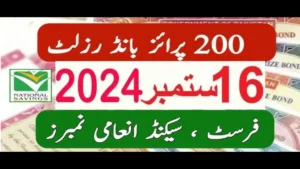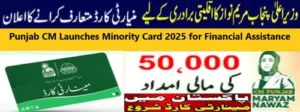Experts call for tax ultra-processed foods to curb diseases and ensure a healthy lifestyle.
Junk Food Blues: Can a Tax Fix Pakistan’s Health Crisis?
Pakistan’s love affair with sugary snacks and processed treats may be sweet for taste buds, but it’s leaving a bitter aftertaste in the form of skyrocketing rates of obesity, heart disease, diabetes, and more.
These diet-related “bad guys” are now a major threat to Pakistanis’ health, prompting a chorus of demands from health experts and citizens alike: tax the junk food!
Calling for urgent action, a recent workshop organized by the Pakistan National Heart Association (PANAH) saw experts and civil society representatives urging the government to implement stricter controls on ultra-processed foods.
Read More: Elon Musk`s Neural Link Valued at $5 Billion
Their top suggestion? An excise duty on these unhealthy options, with the revenue used to promote public health and make healthier alternatives like fruits, vegetables, and lentils more affordable.
The numbers paint a concerning picture. As Country Coordinator at Global Health Advocacy Incubator, Munawar Hussain starkly highlighted the alarming rise in chronic diseases like heart attacks, strokes, and diabetes across Pakistan.
He emphasized the government’s responsibility to take action, proposing a federal excise duty on ultra-processed foods, particularly sugary drinks, as a proven strategy to tackle this growing health crisis.
But is a tax the magic bullet? The argument goes that by making junk food more expensive, consumers will be nudged towards healthier choices.
The additional revenue could then be used to subsidize healthy alternatives and invest in public health initiatives, creating a positive ripple effect.
However, concerns remain. Will a tax disproportionately impact lower-income families who rely heavily on affordable processed foods? Can an effective monitoring system be implemented to ensure the revenue truly benefits public health?
Read More: Top 5 Vitamin D-Rich Dry Fruits
These are questions that need careful consideration before any policy moves forward.
One thing is clear: Pakistan’s growing junk food problem demands a solution. Whether it’s through taxes, education campaigns, or a combination of both, the government must take decisive steps to safeguard the health of its citizens.
The future of a healthier Pakistan hinges on making healthy choices the easier choice, and perhaps, a little less taxing on everyone’s wallets and waistlines.
Junk Food Blues: Can Pakistan Tax its Way to Better Health?
Pakistan’s love affair with sugary snacks and processed treats isn’t just a flavor thing, it’s a health crisis in the making. Obesity, heart disease, diabetes – these are the bitter aftertaste of ultra-processed foods (UPFs), and they’re on the rise. So, what’s the cure?
A chorus of voices is chanting one word:
But can a tax fix Pakistan’s junk food problem? That’s the debate heating up after a recent workshop organized by the Pakistan National Heart Association (PANAH).
Read More: Healthx and State Life Insurance to Enhance Health and Life Insurance
Experts and citizens alike are urging the government to slap an excise duty on UPFs like sugary drinks, biscuits, and chips. The goal? Make them pricier, nudge people towards healthier choices, and use the windfall to subsidize fruits, vegetables, and lentils.
Afshan Tehseen Bajwa, former head of the National Commission on the Rights of Child, understands the affordability challenge. UPFs are often cheaper than their nutritious counterparts.
Her solution? Tax UPFs, drive down consumption, and use the cash to make healthy options cheaper for poorer families – a win-win for health and wallets.
Dr. Khawaja Masuood Ahmed, from the Ministry of Health, is on board. He’s all for taxing sugary drinks and adding UPFs laden with sugar, salt, and fat to the excise duty list. Sanaullah Ghumman, PANAH’s spokesperson, echoes the sentiment, urging the media to amplify the message to policymakers and pushing for an UPF tax in the upcoming budget.
Read More: Cough Syrup from Peshawar Raises Health Alarm
But critics raise concerns. Will a tax unfairly burden low-income families? Can we ensure the extra revenue truly goes towards public health? These are valid questions that need careful consideration.
One thing’s clear: Pakistan’s UPF problem needs a solution. Whether it’s taxes, education campaigns, or a combination, the government can’t wait. The future of a healthier Pakistan depends on making healthy choices the easier choice. So, let’s tax the junk, subsidize the good, and pave the way for a healthier, tastier future for all.
Note: The information above might not be accepted 100%. Please verify from your own sources. We will not be responsible for any kind of loss due to our content.
For more news, please visit Munafa Marketing.




